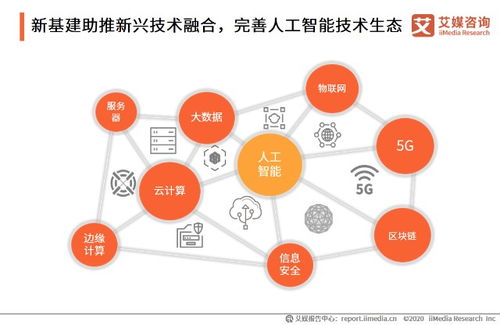
美国白宫要求设立“首席人工智能官”,旨在保障AI使用行为公开透明,同时国会禁止员工使用Copilot。微软希望通过推出“Stargate”超级计算机项目来解决众议院对AI安全性的担忧。OpenAI与“Stargate”签订1000亿美元数据中心项目,并计划将此用于驱动其生产的AI产品。OpenAI推出“声音引擎”,用户可以从15秒的样本生成合成的语音副本,预计将吸引100个合作伙伴。然而,尽管OpenAI受到市场认可,但由于GPT商店的应用难度较大,GPT商店订阅者仅占ChatGPT网站桌面访问量的1.5%。OpenAI紧急启动货币化计划,意图改变GPT商店低落的局面。OpenAI目前聘请了高管,Demis Hassabis被任命为初创基金经理,但他的人际关系问题引起了一些人的质疑。Facebook和Meta开始研发强人工智能,向公众展示其AI技术的潜力。在面临监管压力的情况下,谷歌DeepMindCEO Demis Hassabis因“为人工智能服务”获得英国骑士勋章,引发争议。随后,Meta将在本月为雷朋智能眼镜引入AI功能,如物体识别和翻译。《纽约时报》的评测显示,这些功能将由唤醒词“Hey Meta”唤醒。
Title: Chief AI Officer in the United States: A Balance between Transparency and Security
In recent months, the world has witnessed significant advancements in artificial intelligence (AI) technology, particularly with the increasing reliance on these systems in various industries such as healthcare, finance, transportation, and more. The rise of AI is causing concerns among policymakers about its impact on privacy, security, and accountability, prompting the establishment of new roles within government agencies to ensure that AI use practices are transparent and ethical.
The United States' Department of Homeland Security (DHS), led by President Joe Biden, recently announced its intention to create a "Chief Artificial Intelligence Officer" position, aimed at overseeing the development, deployment, and management of AI technologies. This move is part of the broader effort to address the growing public concern over the transparency and accountability surrounding AI use. By establishing a dedicated officer, the DHS aims to establish clear guidelines for responsible AI development and deployment, ensuring that AI decisions made by government agencies are transparent to stakeholders.
One of the key priorities of the Chief AI Officer will be to promote transparency in AI decision-making processes. The objective would be to establish a framework that enables all government agencies to understand how AI algorithms are developed, trained, and deployed, making it easier for them to identify potential biases or errors. This would involve engaging with researchers, industry experts, and stakeholders to develop a comprehensive understanding of AI's capabilities and limitations, including their potential impacts on society.
Furthermore, the Chief AI Officer will be responsible for ensuring that AI decisions are made with transparency in mind. This includes setting up mechanisms for assessing the accuracy, reliability, and bias of AI systems, as well as establishing guidelines for data collection, labeling, and storage practices. By enabling governments to measure the performance and fairness of AI systems, the chief AI officer can help mitigate any negative consequences of AI adoption, such as discrimination, overreliance, or unintended outcomes.
The creation of the Chief AI Officer will also provide an opportunity for increased accountability in the development and use of AI technologies. It will enable the oversight of government agencies to hold themselves accountable for any negative impacts that may result from AI use, ensuring that they prioritize ethical considerations over profit or convenience. This could lead to greater scrutiny of AI algorithms used in critical domains, such as national security, healthcare, and law enforcement, and encourage more transparent and responsible practices.
Another essential aspect of the Chief AI Officer's role is promoting trust in AI technologies. As AI becomes increasingly prevalent in our daily lives, it is crucial that citizens have confidence in the accuracy, reliability, and safety of these systems. Therefore, the Chief AI Officer will play a vital role in communicating the benefits and risks of AI to the public, highlighting its potential uses and addressing concerns around job displacement, privacy, and civil liberties. This would require fostering open communication channels between the government, AI developers, and the public, empowering individuals to make informed choices about the use of AI in their daily lives.
Finally, the Chief AI Officer's initiatives will contribute to addressing the evolving landscape of AI governance and regulation. With the increasing focus on AI ethics and regulation worldwide, the creation of this new role represents a step forward towards establishing robust frameworks for the responsible development and use of AI technologies. The United States is expected to collaborate with international partners, including other countries and non-profit organizations, to share best practices and ensure global consistency in AI policy-making.
However, despite these efforts, some critics argue that the establishment of the Chief AI Officer may not go far enough to address the challenges posed by AI. They argue that the role may lack teeth if it lacks meaningful enforcement mechanisms, such as strict penalties for AI-related misconduct or whistleblower protections. Furthermore, the potential for misuse of AI technologies, such as through biased algorithms or unchecked power dynamics, raises questions about the effectiveness of the Chief AI Officer's role.
To counter these concerns, the Chief AI Officer must work closely with Congress to develop comprehensive legislation that addresses these issues. This legislation should establish clear regulatory standards, guidelines, and oversight mechanisms for the development and deployment of AI systems, ensuring that AI is used in ways that benefit society while minimizing harm. It should also include provisions for data privacy, accountability, and transparency, and empower individuals to file complaints against AI-related misconduct or abuses.
In conclusion, the establishment of the Chief AI Officer in the United States is a critical step towards promoting transparency and accountability in AI development and use. While this initiative offers numerous opportunities to enhance public trust and foster responsible AI practices, it is only one component of a larger effort to address the complex challenges posed by AI. The successful implementation of the Chief AI Officer requires collaboration between the government, AI developers, and the public, as well as robust legislation and regulatory frameworks that safeguard against potential harms and abuses. Only by working together can we ensure that AI serves as a force for good in shaping the future of humanity while minimizing its risks and negative impacts.


















